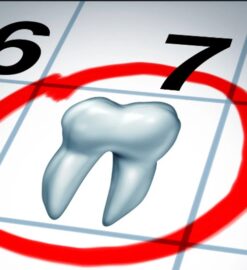Deep Cleaning: When It is Necessary to Undergo the Procedure

While you may be brushing and flossing your teeth regularly, this may not be enough to avoid oral health issues such as gum disease, tooth decay, and tooth loss. Apart from home oral hygiene practices, it is important to see your dentist twice every year for dental checkups and cleanings. Your dentist can get rid of plaque buildup and address dental cavities. And if they discover that you have gum disease, they may recommend a deep cleaning.
How Deep Cleaning Works
Deep cleaning is also known as root planing or gum scaling. It is performed to get rid of plaque and tartar that may have built up underneath your gum line. Plaque is filled with bacteria that form when food particles combine with your saliva. Brushing and flossing your teeth do not eliminate all plaque. The plaque that is left hardens into tartar, which can cause gum disease.
During your regular dental cleaning at a NE Philadelphia dental office, your dentist will get rid of plaque and tartar that developed above the gum line. But if the plaque has developed below your gum line to the roots of your tooth, you may need to undergo deep cleaning to prevent tooth loss and gum disease.
Who Can Benefit from Deep Cleaning
When you come in for a routine dental examination, your dentist will check your mouth for signs of gum disease like bleeding or inflamed gums. Also, they measure the space between the gums and teeth since the gums may pull away from the teeth due to gum disease. Eventually, the pockets between your teeth and gums widen and create more space for bacteria to colonize your mouth.
If it has been a while since your dental visit, you may have tender gums, bad breath, bite changes, or sensitive teeth due to gum disease. If regular brushing and flossing cannot reverse mild gingivitis, your dentist may recommend a deep clean to save your oral health.
What to Expect During Deep Cleaning
Deep cleaning involves scaling and root planing procedures. Scaling involves removing plaque and tartar that have formed below the gumline. Meanwhile, root planing is focused on smoothing the roots of the teeth, so bacteria cannot stick to them. To kill bacteria that hide in hard-to-reach places in your mouth, your dentist may recommend an antiseptic rinse or apply an antibiotic gel. Often, deep cleaning happens in several appointments, depending on how serious the plaque and tartar buildup is.



